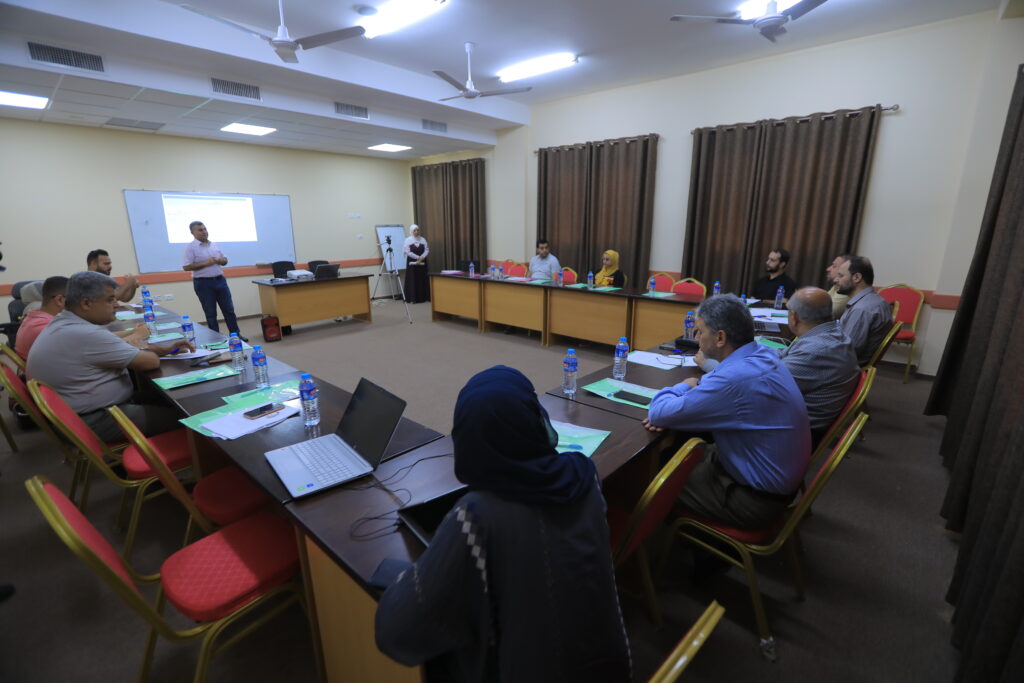Assessing the Impact of the Disability under Siege Project

In collaboration with the University of Birmingham in the UK, the Islamic University of
Gaza organized a workshop titled “Assessing the Impact of the Disability under Siege
Project on Participants and the Target Group in Gaza. The workshop brought together 25
participants, including decision-makers and activists in the field of disability rights.
Representing eight academic and non-academic institutions working in the disability
field, there were disabled students and graduates with visual, hearing, and mobility
disabilities.
The workshop featured the participation of Dr. Vera Kubenz, a researcher from the
University of Birmingham, and Sarah Martin, the project coordinator. They joined
remotely via Zoom to present the project's key activities and achievements, expressing
gratitude to all attendees for their participation.
Dr. Nazmi Abdel Salam Al-Masri, the director of the Disability under Siege Project at the
Islamic University of Gaza, highlighted that this workshop is part of the project's ongoing
activities. The Islamic University of Gaza is a partner in this collaboration with the
University of Birmingham, Birmingham City University (UK), Birzeit University
(Palestine), the Center for Lebanese Studies (Lebanon), and other institutions in Jordan
and the West Bank.
The workshop aimed to assess the impact of project activities on the participants and their
affiliated institutions, both at an individual and institutional level. This included
participation in various project-related activities such as meetings, research, translations,
and raising awareness about disability issues. The ultimate goal was to promote positive
attitudes towards people with disabilities, provide educational and research services,
enhance capacities, and enable effective participation in community development.
To evaluate the impact, participants were required to complete a questionnaire via a
Google form prior to the workshop. The questionnaire collected essential data related to
research, previous workshops, interviews, and participation in international and local
conferences.
During the workshop, participants discussed various aspects related to people with
disabilities, including perceptions, attitudes, policies, strategic goals, academic practices,
curriculum design, teaching methodologies, evaluation methods, and the use of
technology in education. Additionally, they examined the role of scientific research,
communication skills, media, and infrastructure of institutions.
Engaging in fruitful discussions, attendees unanimously agreed that the activities of the
Disability under Siege Project had positively influenced all aforementioned aspects. They
highlighted an increased awareness and understanding of disabilities among individuals
and society, leading to more inclusive attitudes and beliefs. Participants acknowledged
the skills, abilities, and experiences of people with disabilities, recognizing their potential
for competition and their pivotal role in effecting positive change. They emphasized the
importance of creating laws, policies, and collective efforts to further improve the quality
of life for all individuals in society.
The workshop concluded with a shared commitment to continued collaboration and
concerted efforts toward creating a more inclusive and supportive environment for people
with disabilities.




